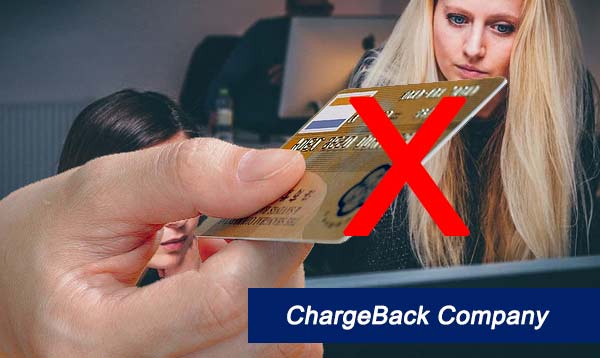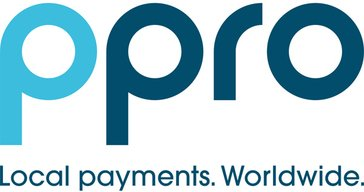Chargeback Company
Chargeback Company Table of Contents
- Chargeback Company
- What Are Chargebacks
- Why Chargebacks Happen
- Reasons For Chargebacks
- CVV Of Chargebacks
- Credit Card Issues
- Technical Problems Of Credit Card
- Risks Of Chargebacks
- Reducing Chargebacks
- Reducing Chargeback Rate
- Reducing Chargeback Rate Through Fraud Protection
- Reducing Chargebacks Through Better Security
- Overview of Chargeback Company
- Best Payment gateway Solution by Rating
- Best Payment gateway Solution by Price
- Best Payment gateway Solution by Rated Features
- Check Your Payment gateway Solution Offers Round The Clock Support
- Make Sure Your Payment gateway Solution Offers The Features You Need
- Best Payment gateway Software Solution Verdict
- Payment gateway Software Frequently Asked Questions
- What is the best Payment gateway Solution?
- What is the cheapest Payment gateway Solution?
- Is there a free Payment gateway Solution?
- View all of the top Payment gateway Software Solutions
- Payment gateway Alternatives
- Payment gateway VS Side by Side Comparisons

Chargeback Company
What Are Chargebacks
Many people don't know what a chargeback actually is, despite the fact that the topic of online finance and trading is frequently talked about in forums such as these. A chargeback is simply a return on a credit transaction, specifically a credit card transaction, to a payer after the bank verifies that the money has been spent and that the cardholder is the owner of the money. In this context, it is important to note that the phrase 'chargeback' should never be used in an unprofessional manner. In fact, it should only be used within the industry and to refer to any return on credit transactions that a particular financial institution or card vendor has made. This is particularly important if you are working with international money exchanges where chargebacks can occur at any time.
Why Chargebacks Happen
Chargebacks happen when a financial institution's systems fail to verify the validity of a particular chargeback request by the cardholder for a credit or debit transaction. Rather than responding to the chargeback, the bank will instead issue a chargeback to the credit or debit card, essentially telling the cardholder that they can't spend the money because it was unauthorized. This causes a lot of problems for merchants and buyers alike because the failure of the bank to respond to the chargeback transaction can result in both parties being forced to incur extra fees and penalties, and the original transaction may even be canceled. If a merchant has failed to follow through with an expected sale after the authorization of the credit or debit card, then the merchant may have a legitimate claim to a chargeback, but it may not be covered by the original agreement between the merchant and cardholder. On the other hand, if a buyer has been the victim of a chargeback but was able to successfully return the goods to the seller before the merchant's system went into default, the buyer may be able to take advantage of the chargeback to obtain his or her money back.
What are Chargebacks? Chargebacks are used to protect both the merchant and the customer from spending more money than they authorized, but chargebacks are a necessary part of the credit and debit card industry. Banks must remain in business and must protect themselves against merchants who might try to fraudulently charge their customers, and consumers need to know when they are being charged for something they did not order. Chargebacks will help ensure that merchants have the protection they need from unscrupulous business partners who try to use the threat of a chargeback to force payment recipients to pay more than they should.
Reasons For Chargebacks
Why is it important for you to know why and how chargebacks occur? First of all, it helps you understand what a chargeback is. A chargeback happens when a customer that bought from you claims that they have been deceived by you. They feel that you did not give them the product that they ordered, or perhaps did not follow through with an agreement that was made between the two parties. For these reasons, they have decided to charge back the purchase so that you will be forced to repay the money if they are ever able to get their money back. Chargebacks can happen for different reasons, ranging from fraudulent transactions to faulty products.
Knowing the reasons behind a chargeback also helps you prevent them from happening in the future. For example, it is always important to keep track of the products that you send and keep delivery receipts. When a customer uses your website to make a claim, it is your responsibility to make sure that the transaction is processed according to the terms of the merchant account provider. If you have used a third party payment processor to process the transaction, it is also important to notify them in writing so that they will not charge back the claim later. Finally, it is always important for you to provide adequate proof of the transaction to the customer in order to avoid a chargeback.
Another way to prevent chargebacks is to sign up only with reputable processors. You should check the reputation of each processor individually before you decide to use their services. Once you have found the right processor to use, you should inform your merchant account provider so that your merchant account is protected against chargeback issues. Also, you may want to consider working with an online merchant service provider to provide online dispute processing.
CVV Of Chargebacks
The CVV of Credit Card applicant is a document submitted by the applicant to the issuer under the rules of credit card licensing. It is basically a summary of the applicant's financial position, and this forms part of the licensing examination in which the applicant needs to demonstrate his or her ability to pay for transactions using credit cards. The summary gives the license holder several points to work upon. The most important point is highlighted, which is the ability to meet the specified minimum payment under the agreement entered into between the applicant and the issuer. The applicant is required to show that the payment made is consistent with the financial position outlined in the CVV.
Credit card cvv number or CVC is a six-digit number given to the applicant by the issuer during the initial credit card processing stage. The number is usually assigned by the bank on application after the applicant's credit card has been approved. However, this number is considered as an identity number as it is used by many organizations including merchants, financial institutions and even travel agents and so on to complete card transaction details. Hence, the applicant should ensure that the CVV of Credit Card applicant includes a CVC.
The second section or the second step in the process is to submit the CVV of Credit Card applicant along with the bank statements and pay slips to the licensed issuing bank. This gives the licensed issuer the ability to validate the information provided by the applicant. The issuer normally verifies the CVC issued by the applicant's bank and also any other information deemed relevant. Once this is completed, the licensed issuing bank will contact the applicant regarding their next steps in the process. Usually, it takes about three business days for the issuer to complete this entire process.
Credit Card Issues
Credit cards have long been a part of our society and they've provided people all over the world with a method of payment that can help them make their purchases. Unfortunately for some consumers, credit card issues can result in unwanted consequences. If you or someone you know has experienced any type of credit card problem in the past, it's important to understand your rights and what you can do about them. Although the situation may have been your fault and you have fallen behind on your payments, credit card companies are often willing to work with you in order to resolve the issue. Remember that most credit card companies offer full refunds or reduced interest rates if the situation is resolved in a satisfactory manner.
One of the first things you should consider when you're dealing with credit card issues is whether the issue was your fault or not. A number of stumbling blocks will prevent your clients from completing the transaction, including an unclear process, unforeseen shipping charges or unreasonable time spent waiting to receive goods, among other concerns. However, a previously declined credit card is by far one of the most frustrating deal breakers in making an online purchase, whether its your fault or not. Whether it was your fault or not, there is a way to at least get the process moving again so you can focus on receiving your goods.
Another way to deal with credit card issues is to notify the company about the fraudulent activities. As most people are aware, credit cards have become a common tool for fraud in the past few years, which can allow a number of unscrupulous people to use this plastic money to obtain items they would otherwise be unable to acquire in person. By informing the credit card companies immediately about suspicious activity, you may prevent the problem from further damaging your credit rating and your financial future. After all, you don't want to see yourself become one of the unfortunate victims of fraud!
Technical Problems Of Credit Card
There are many reasons why people encounter technical problems with their credit cards. The most common reason for this is the improper installation of the software or hardware. The credit card company may not have provided the technical support required in a timely manner. In addition to that, if a virus or worm has invaded the system, then it might be necessary for the credit card holder to upgrade his antivirus to repair the damage caused to the system. However, most technical problems can be easily sorted out by calling the customer service of the card issuer.
Sometimes, there can be problems related to the bank. If you are not sure about whether the card has been properly authorized by your bank, then you must call the customer service and seek help. Many companies have a detailed list of all the banks that have issued cards to their customers. However, if you do not have access to the online database, then you will have to rely on the phone number of the customer service department of your bank to get the information you need.
However, there are some instances where even if you are using an authentic card, the card may have certain technical problems. In such cases, you will have to take the help of a professional who will guide you through the technical problems. You will also have to fix the problem before it adversely affects your finances. Therefore, before buying any card, you should keep in mind all the possible technical problems that might occur with the card.
Risks Of Chargebacks
In the field of e commerce, Risk of Chargeback is a very big issue. Since Credit Card transactions are the backbone of all e commerce businesses, every business owner is very well aware of the risk of charge backs and fraudulent transactions. The main purpose of risk management in e commerce businesses is to minimize this risk and prevent the loss of business to the clients. The aim is not to prevent charge backs but to mitigate it. The credit card companies are also adopting various risk management techniques to reduce the risk of charge backs.
Among the techniques that the credit card companies adopt for managing risk of fraud transactions, one of the best is the Real Time Costless Payment option (RTCP). With Real Time Costless Payment, the merchants can provide real time protection against charge backs and fraudulent transactions by accepting electronic payments or debit card transactions made via your website. As the merchant, you need not pay the extra transaction fee for an enhanced level of security. RTCP provides you with a solution for high risk merchants as well by providing payment gateway service that is nearly free for an enhanced level of security.
If you are a merchant, it is important that you take steps to minimize the risk of chargebacks. As a responsible and caring merchant, you need to take steps to dispute chargebacks promptly and thoroughly. If you don't dispute, you might find yourself facing a large chargeback situation where your reputation will be at stake and you may lose your business.
Reducing Chargebacks
Reducing Chargeback Rate
The first step towards reducing charge backs is to find out how susceptible you are to charge backs, and how much of a risk you are for having charge backs. The average merchant stands to lose 206 chargebacks per month, resulting in an average of nearly $146 charged back per e-mail message. Most e-mail messages will never be paid back, but there are some exceptions such as trial memberships, free gifts, or sample products that are subject to acceptance. The average e-mail message that does not result in a refund contains a subject line that usually includes the words 'Your account has been charged', an offer that may require the customer to open an online account or may require the customer to enter credit card information, such as their credit card number.
Reducing Chargeback Rate Through Fraud Protection
When the customer's credit card information is collected by the software used by many online merchants, the information is transmitted to third parties who use data encryption to ensure that the data remains private and confidential. However, even though this software minimizes chargeback fraud to a significant degree, there are many e-mails that get through the security wall and contain an electronic signature, which is almost impossible to detect. If the customer's credit card information is submitted to one of these third party companies, it is very easy to reduce the amount of e-mails that contain these signatures by using fraud prevention software. Some of these software programs have a built-in mechanism that alerts the user when a transaction is attempted on an account that does not belong to the merchant and thus prevents the fraudulent activities. Additionally, this type of software can be configured to monitor the websites that a merchant uses in order to detect unauthorized transactions.
Reducing Chargebacks Through Better Security
Since fraudulent transactions do not always result in a refund, a merchant may be subject to a variety of charges for returning a failed or stolen credit card, as well as charges for attempting a transaction on a site that does not belong to the merchant. In addition, some chargeback fraud occurs during times when the merchant is taking orders for products that are impossible to deliver. By taking advantage of special software that blocks fraud before it happens, the cost of e-commerce fraud can be limited, which can translate into better business for both the customer and the e-business.
Scroll down to read our indepth Payment Platforms guide. What you should know, Payment Platforms features, price plans and support. Pros and Cons of Payment Platforms as a payment gateway, everything is explained below.
Overview of Chargeback Company
Spreedly is a software company that specialises in payment-gateway software for small to enterprise level businesses.
Spreedly is listed as the best payment-gateway software related to Payment Platforms. Spreedly was founded in 2008 in Durham, NC and currently has over 79 employees registered on Linkedin.
Best PAYMENT GATEWAY Solution By Rating
Get our stories delivered
From us to your inbox weekly.
 Spreedly
Spreedly
 Simpl
Simpl
 allpago
allpago
 EBizCharge
EBizCharge
 Bolt
Bolt
 PayLane
PayLane
 Paytm Business
Paytm Business
 Apple Pay
Apple Pay
 Paystack
Paystack
 SquareUp Payment Method
SquareUp Payment Method
 Ingenico ePayments
Ingenico ePayments
 PayMart
PayMart
 Paymill
Paymill
 Yapstone
Yapstone
 TRUSTLY
TRUSTLY
 Wirize
Wirize
 Zotapay
Zotapay
 Zooz
Zooz
 Zipmark
Zipmark
 XTRM
XTRM
